Search
Did you mean: Gnosticism?
Summary 
Loading AI-generated summary based on World History Encyclopedia articles ...
Search Results
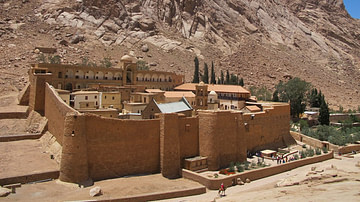
Article
Byzantine Monasticism
Monasticism, that is individuals devoting themselves to an ascetic life in a monastery for devotional purposes, was an ever-present feature of the Byzantine empire. Monasteries became powerful landowners and a voice to be listened to in imperial...

Article
The Monastic Movement: Origins & Purposes
In 313 CE, Constantine the Great (272 – 337 CE) ended the sporadic-yet-terrifying Christian persecutions under the Roman Empire with his “Edict of Milan,” and brought the Christian church under imperial protection. Not surprisingly, public...
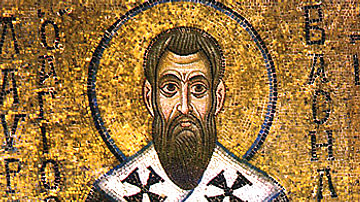
Definition
Basil the Great
Saint Basil (c. 330 - c. 379 CE), also known as Basil the Great and Basil of Caesarea, was a bishop of Caesarea in central Asia Minor who staunchly defended the church against the 4th-century CE heresy of Arianism. Basil's writings on monasticism...

Article
Monastic Orders of the Middle Ages
The monastic orders of the Middle Ages developed from the desire to live a spiritual life without the distractions of the world. Men and women who took religious vows were seeking a purity of experience they found lacking as lay people. Their...
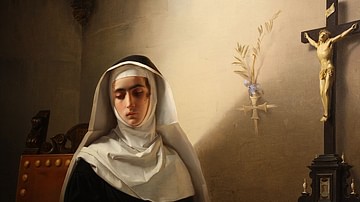
Article
The Daily Life of Medieval Nuns
Monasteries were an ever-present feature of the Medieval landscape and perhaps more than half were devoted solely to women. The rules and lifestyle within a nunnery were very similar to those in a male monastery. Nuns took vows of chastity...
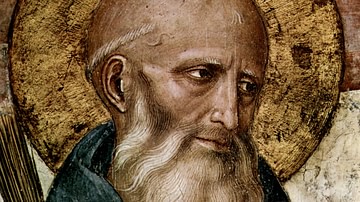
Image
Saint Benedict of Nursia
A 15th century CE fresco detail depicting Saint Benedict of Nursia (c. 480 – c. 543 CE), an important figure in the spread of Christian Monasticism. (Museo di San Marco, Florence)

Definition
Christianity
Christianity is the world's largest religion, with 2.8 billion adherents. It is categorized as one of the three Abrahamic or monotheistic religions of the Western tradition along with Judaism and Islam. 'Christian' is derived from the Greek...
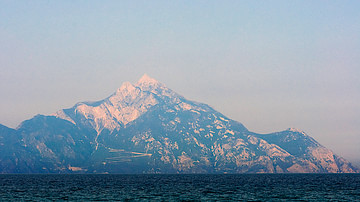
Definition
Mount Athos - The Byzantine Holy Mountain
Mount Athos, located on the Chalkidike peninsula near Thessalonica, Greece, is a holy site which first saw hermit monks living there in the 9th century CE. Regarded as one of the most important monastic sites in the Byzantine Empire, there...
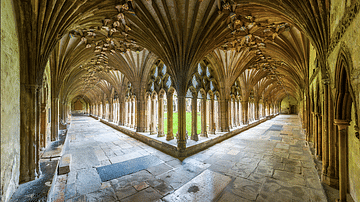
Article
The Layout of a Medieval Abbey
Abbeys were a striking feature of medieval urban and rural landscapes. Their layout and architecture reflected their purpose as cut-off monastic retreats which, conversely, also served and inspired their local communities. Although evolving...
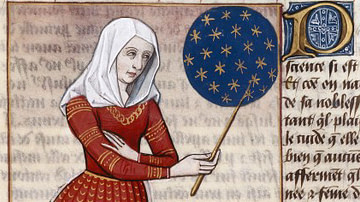
Article
Ten Should-Be Famous Women of Early Christianity
There were many famous women of early Christianity who made significant contributions to the development of the faith but have since been largely forgotten. Some have been canonized by the Church or recognized in other ways, but their efforts...